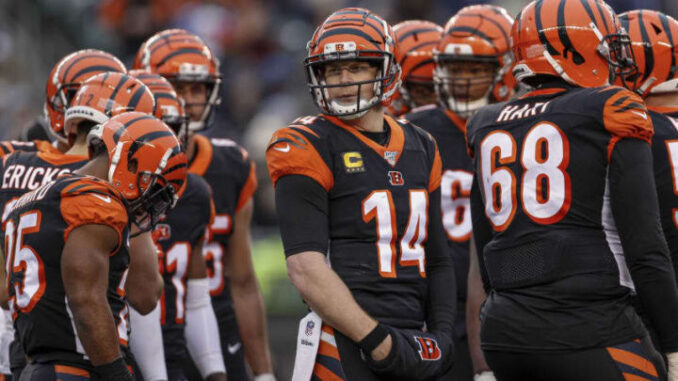
When a contract between a player and the Cincinnati Bengals is terminated, it signifies the end of the agreement that binds the player to the team. This can occur for various reasons, ranging from performance issues to mutual agreement, salary cap considerations, injury concerns, or disciplinary actions. In any case, terminating a contract has significant implications for both the player and the franchise.
Reasons for Termination
- Performance-related Termination: If a player consistently underperforms or fails to meet the team’s expectations, the Bengals may decide to part ways. This is a common reason for contract termination, particularly in a league as competitive as the NFL, where players are expected to perform at a high level week in and week out. Underperformance, even from high-profile players, can result in a terminated contract if the team feels the player is no longer contributing to their success.
- Injury Concerns: The nature of professional football means that players frequently suffer injuries. In some cases, these injuries are severe enough to affect a player’s long-term ability to contribute to the team. If the Bengals’ medical staff determines that a player will be unable to return to form, they may decide to terminate the contract. This decision can come from either the team or through mutual agreement if the player recognizes their own limitations due to injury.
- Salary Cap Issues: The NFL operates under a salary cap, which means that each team has a set limit on how much they can spend on player salaries. If a player’s contract becomes too burdensome financially, the Bengals may opt to terminate it in order to create cap space. This often happens with veteran players whose performance no longer justifies their high salaries or when the team needs to allocate funds to other positions or players.
- Disciplinary or Behavioral Issues: Another potential reason for contract termination is off-field behavior or violations of the team’s or league’s conduct policies. If a player is involved in legal issues, exhibits unprofessional behavior, or is suspended by the NFL for violating its rules (such as drug use or other forms of misconduct), the Bengals may choose to terminate the contract in the interest of maintaining team discipline and public image.
- Mutual Agreement: Sometimes, the decision to terminate a contract is mutual. A player may request to be released if they feel that they are not being utilized effectively or if they want to explore other opportunities. If the Bengals agree that it is in the best interest of both parties, they may come to an arrangement that ends the contract without conflict.
Financial Implications
Terminating a contract often involves financial repercussions. Depending on the terms, the Bengals might owe the player a portion of their guaranteed money. Dead cap space—money tied up in the salary cap due to guaranteed portions of the contract—is a major consideration. If the player’s contract included guaranteed money, the Bengals could be on the hook for those amounts even after termination. This is why teams carefully structure contracts, often including performance incentives and non-guaranteed salaries to mitigate the financial impact of terminating a deal.
Future Prospects
For the player, a contract termination doesn’t necessarily mean the end of their career. Many players, after being released, sign with other teams. If they can prove that they are still valuable on the field, another team may take a chance on them. In contrast, some players may choose to retire after a contract termination, particularly if age, injury, or personal reasons come into play.
In conclusion, a contract termination in the NFL, specifically with the Cincinnati Bengals, is a multifaceted decision that affects both the player and the team in terms of performance, finances, and future career prospects. Whether driven by performance, financial constraints, or mutual agreement, such decisions are critical moments in the life of any professional football player.
Be the first to comment